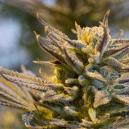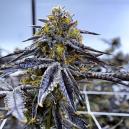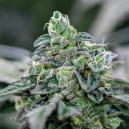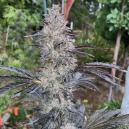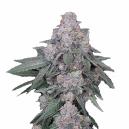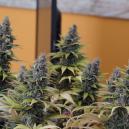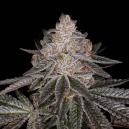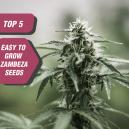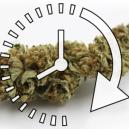Combining CBD With Other Medication
Published :
Mar 4, 2019
Categories :
Medical cannabis

Almost all medications, no matter whether they are produced in a lab or grown from the ground, interact with each other in some way. Combining drugs can augment or decrease their effects, and can cause potentially dangerous side effects. How safe is it to combine CBD with other medication?
With cannabis laws becoming more relaxed, more patients are now looking to CBD as a treatment option for many health conditions. From the management of chronic pain to treating seizures or anxiety, CBD is now finally entering the mainstream. This raises the question about the effects of CBD when taken with other medications. Here is what you need to know if you’re taking CBD together with other drugs.
HOW CBD INTERACTS WITH OTHER DRUGS
Although taking CBD by itself is considered safe, it can alter how our body metabolises other substances. One effect of this can be that certain medications stay in the system longer than intended, which could lead to undesired effects. Moreover, CBD as a medicine is a rather new area, with research in the field ongoing and not all of the potential side effects of CBD yet understood. This urges caution when taking CBD, particularly with other medications.

THE CYTOCHROME P-450 ENZYME SYSTEM AND CBD
Our body metabolises 90% of the drugs that we consume with what is called the cytochrome P-450 enzyme system. This system breaks down the substances we consume and turns them into simpler substances that our body can use. One known effect of taking CBD in large doses is that it can inhibit the effectiveness of this system. The result of this is that it will be more difficult for the body to process certain other substances. Since most pharmaceutical drugs are metabolised by the cytochrome P-450 enzyme, this means that they are interacting with CBD in some way or another.
Here is a list of common medications and and their interactions with CBD:
1. EPILEPSY, SEIZURE MEDICATION
Clobazam is commonly prescribed for the control of seizures in patients with epilepsy. Recently, a medication based on CBD from the hemp plant has also been approved by the FDA to treat certain types of epilepsy. Does CBD interfere with Clobazam?
A study conducted in 2015 and published in the Journal Epilepsia found that combining CBD and Clobazam can possibly increase the levels of the latter in the body, augmenting its effect. Patients who took both reported increased sedation.
In another study, it was found that Clobazam may interact with CBD in a way where some patients may experience more fatigue and tiredness. The research in this area is still not conclusive, but these preliminary results suggest that caution would be advised when taking these two medications.
2. ANTIDEPRESSANT MEDICATIONS (SSRIs)
A lot of people use CBD as an alternative or additional treatment for anxiety, stress, depression, sleeping troubles, and similar mental conditions. Anecdotally, CBD has helped a wide variety of patients, although the effectiveness of CBD for these conditions and its specific actions need to be validated by future medical research.
Patients who suffer from these psychological conditions are often prescribed selective serotonin reuptake inhibitors (SSRIs). Among the most commonly prescribed branded drugs here are Prozac, Paxil, Celexa, and others that are widely given by doctors for depression, panic attacks, and similar conditions/symptoms.
It seems that interactions between CBD and these types of antidepressants are rare, although this is also merely based on anecdotal reports by users who are taking CBD with these drugs. Then again, there are also some rare reports that taking SSRIs together with CBD can increase the risk for hypomania, which is a mild form of mania.
People who are taking SSRIs would be advised to talk to a medical professional about whether they can safely take CBD. A doctor can best assess whether CBD would lead to any adverse interactions, and he or she can help determine the correct dosage for you.

3. COLD AND FLU MEDICINE
NyQuil is a common over-the-counter medicine that people take for the relief of cold and flu symptoms. The main active ingredient in NyQuil is doxylamine, which is an antihistamine that can also often be found in allergy medicines.
Taking CBD together with medicines containing doxylamine can lead to side effects such as drowsiness, confusion, or cognitive and motor function impairment. The reason for this is that CBD is thought to inhibit the function of the enzymes in the liver, causing the drugs to be broken down at a slower rate. Undesired side effects can result. Caution is advised.
4. ANTI-ANXIETY MEDICATION (BENZODIAZEPINES)
Xanax (alprazolam) is quite commonly prescribed for anxiety and panic disorders. It is a minor tranquilizer. Although reported side effects when taking Xanax together with CBD are rare according to anecdotal reports, mixing CBD and Xanax can increase the side effects of either or both.
The most common side effects from combining Xanax and CBD are drowsiness, confusion, and concentration problems. Speak with your doctor before combining the two so you can avoid adverse effects.
5. BLOOD THINNERS
The majority of patients who use Warfarin, which is a commonly prescribed blood thinner (anticoagulant), do not report significant side effects in combination with CBD. Yet, there is evidence that CBD can possibly increase and prolong the effect of Warfarin.
In one study performed in 2007, it was found that CBD also has a mild anticoagulant effect. Because of that, combining both CBD and Warfarin could essentially have the same effect as taking a double dose of Warfarin.
6. PAIN MEDICATION (OPIOIDS)
Buprenorphine belongs to the opioid group of drugs, which are used for the treatment of severe pain and other disorders. Opioids by themselves are hugely problematic since they are extremely addictive, and when taken in high doses, can cause breathing troubles, coma, or even death.
Since CBD also has a sedative effect, taking both can lead to over-sedation, with an increased risk for these dangerous side effects. So caution would be strongly advised when combining opioids (Bunavail, Probuphine, Butrans, Suboxone, Belbuca) with CBD.

7. BLOOD PRESSURE MEDICATION
CBD is known for affecting blood pressure and heart rate. For this reason, patients who are taking beta blockers for reducing their blood pressure in addition to CBD should be cautious. Taking both can amplify the effect on the heart of each, which could increase the risk for heart attack. This is especially true for patients who have just started taking CBD, as the body will require some time to develop a tolerance.
Common brand names for beta blockers include Tenormin, Toprol-XL, Sectral, Bystolic, and Zebeta. If you’re taking any of these or any other beta blocker, talk to your doctor before considering CBD.
8. ANTI-SLEEP MEDICATION
Sodium oxybate is a neurotransmitter and psychoactive drug that is often given as anti-sleep medication to treat narcolepsy. CBD in combination with sodium oxybate may depress the central nervous system to an unwelcome degree. This can lead to potentially dangerous side effects such as low blood pressure, depression, breathing problems, dizziness, and in severe cases, even coma. So if you’re taking sodium oxybate-based medications such as Xyrem, be cautious when considering CBD. Talk to your doctor first.
COMBINING CBD AND OTHER MEDICATIONS—THE TAKEAWAY
If you’re taking CBD together with other medications, you should always exercise caution. Although CBD is considered safe, you never know about the potential effects when you combine it with other drugs, especially since each person’s physiology is different.
Most importantly, talk to a doctor if you have any concerns or questions about taking CBD and how it could affect your medication. In addition to that, you should also make yourself knowledgeable about the potential side effects of any medication you are taking. And lastly, know that not all medications, including CBD, have the same effect on everyone.














